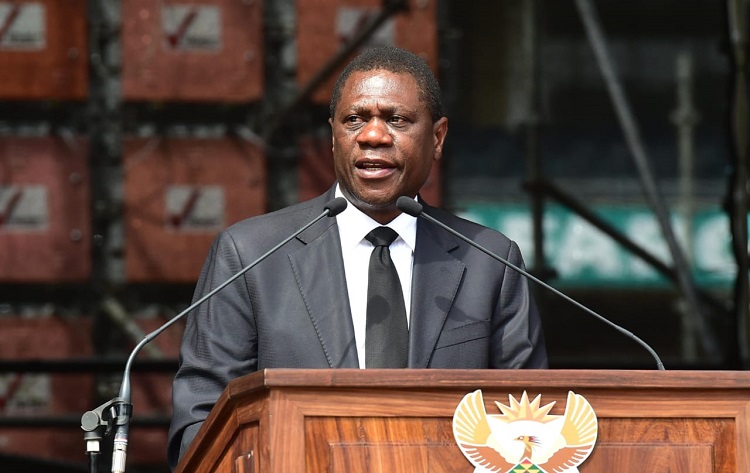By Johnathan Paoli
Deputy President Paul Mashatile has clarified the position of the Government of National Unity regarding the Basic Education Amendment Laws (Bela) Act, following agreements involving the Basic Education Minister Siviwe Gwarube and Solidarity.
In a media statement, Mashatile’s office expressed concern over an informal process that appeared to bypass the established procedures of the GNU’s Clearing House Mechanism, which has been discussing the contentious clauses in the Act for more than a month.
Mashatile emphasised on Friday that the agreement, which was signed at the National Economic Development and Labour Council, was reached outside the official channels and was not aligned with the GNU’s sanctioned processes, or the cooperative framework outlined in its statement of intent.
He said that only one party from the GNU seemed to have been involved in the parallel discussions, along with the minister, raising concerns about their alleged complicity in the unauthorised meeting.
“The Bela Act, like other Acts, is a product of Parliament and the president, and no intervention can therefore downplay the centrality of these key role players,” Mashatile said.
Reaffirming the GNU’s commitment to transparency and due process, Mashatile called on all signatories to the statement of intent to act in good faith and fully cooperate with the official procedures.
He assured stakeholders that the GNU remained engaged in its deliberations on the Bela Act and aimed to finalise the process soon.
Mashatile further assured representatives of all political parties within the Clearing House Mechanism that efforts were underway to collectively manage the situation and reach an amicable resolution.
The next official meeting, where the sub-committee’s recommendations would be presented, would be communicated to all stakeholders in due course, he said.
Meanwhile, the SA Democratic Teachers’ Union (Sadtu) has expressed vehement opposition to the bilateral agreement, condemning it as anti-transformation and accusing Gwarube of aligning with groups seeking to reverse educational reforms aimed at addressing historical inequalities.
“She has declared war on Sadtu and the African majority whose children are being discriminated by racists school governing bodies. She failed in respecting and promoting the Constitution of our country and she must therefore be ready for the real fight on the Bela Act,” the union said.
In a strongly worded statement, Sadtu’s secretariat described the agreement as a regressive move reminiscent of apartheid-era policies, arguing that language and education were being used to perpetuate discrimination.
“Apartheid used language and education to oppress and discriminate against the black majority. History is repeating itself,” the statement read.
The union criticised Gwarube for her alleged failure to consult the union, the largest in the education sector, while signing agreements with what it referred to as non-representative groups.
It also took aim at President Cyril Ramaphosa’s decision to sign the Act while excluding certain provisions, describing it as an unprecedented, illegal and a dangerous precedent.
Sadtu warned that this decision undermined the constitutional commitment to non-racialism and equitable access to education.
Asserting that the agreement violated children’s constitutional right to education without barriers, the union has vowed to challenge what it described as a “right-wing agenda” on multiple platforms.
“The white supremacists must never be allowed to use the department of education to practice their racism,” the statement declared.
The union urged all provincial education MECs to reject the agreement publicly and begin immediate implementation of the Act by 13 December – the deadline the president gave parties to reach a consensus on the contentious sections.
It also called on its members at all levels to prepare for “a war against racism and the minister”.
INSIDE POLITICS

